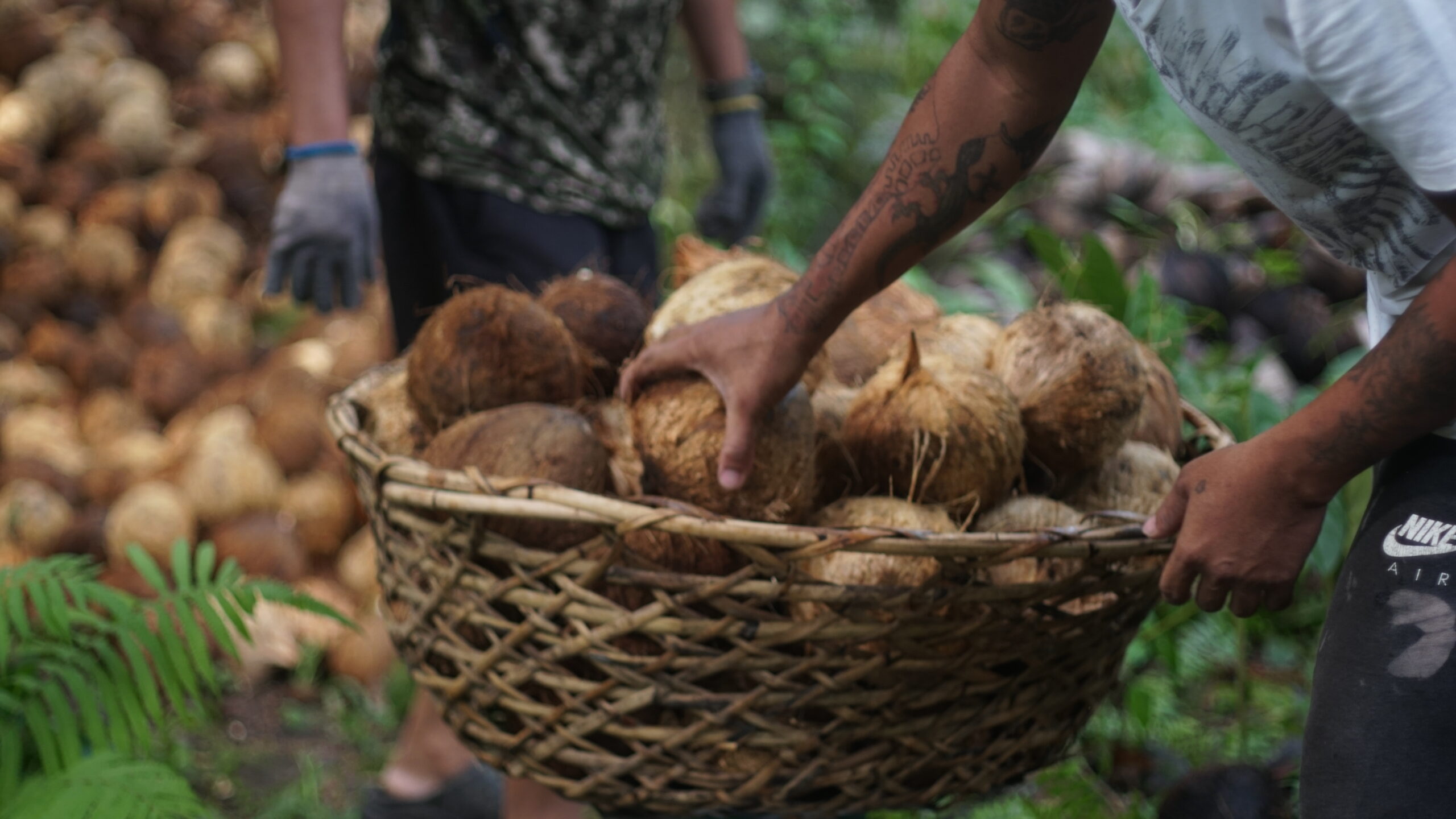June 12 marks World Day Against Child Labor.
Louisse Borela, DIWA’s project manager for the Fund Against Child Labour (FBK) Consortium Coconut Project, which will officially wrap at the end of the month, shares a few reflections on the complexity of child labor in agriculture, highlighting the need to step up collaboration to tackle root causes together.Since 2021, DIWA has been working with a multistakeholder consortium to protect children’s rights and support business and other stakeholders in establishing due diligence mechanisms that take into account the complexity of the coconut supply chain.
The coconut value chain is highly informal and labor-intensive, stretching from smallholder farmers through layers of dealers and subdealers before reaching processors and exporters. Each link—many unseen to outsiders—presents potential risks for child labor and other labor issues.
For industry actors in particular, this characteristic complexity makes it difficult to trace risk, and even harder to address it. Based on DIWA’s research, the Philippine coconut value chain is marked by widespread informality and precarious employment. Understanding the coconut value chain is crucial for identifying key risk points, particularly in segments of the value chain that remain invisible.
At the production level (in coconut farms and farming communities), families under income pressure may rely on their children to help harvest, dehusk, and collect coconuts. In the case of crude coconut oil, after collection, there is additional field processing including copra cooking or sun-drying, and demeating, or removing the dried copra from the husk. These steps are typically performed by farmers, their families, as well as hired laborers, sometimes including minors. Sharp tools, heavy workloads, and minimal mechanization characterize this segment, and risk for child labor remains high, partly due to gaps in monitoring.
Once smallholder output enters the trading and consolidation segment, independent traders and village‐level buying stations purchase directly from farmers or farmer groups, before subdealers and consolidators pool volumes for larger buyers. Opaque pricing, informal agreements, and a web of middlemen contribute to challenges in ensuring traceability and human rights due diligence. At the processing stage, crushing facilities and copra mills extract oil and prepare byproducts, many relying heavily on third party labor providers. Processed goods then move to exporting, where licensed exporters bundle them for domestic and global markets.
Addressing these complex challenges requires contextualized, targeted, and collaborative action. For DIWA, this has meant engaging a project field coordinator who can adeptly move from the business context to the farmer context, translating the issue of child rights in a way that is practical and actionable. A snapshot of DIWA’s work on the ground
DIWA’s work in the sector—including research, human rights impact assessments, capacity building, and community engagement—is grounded in local context and multistakeholder partnerships. Consisting of four (4) nongovernment organizations, two (2) companies, and two (2) industry associations, the FBK Consortium, as a multistakeholder initiative, has brought people with diverse backgrounds and expertise together to begin to address the root causes of child labor in the sector.
In the context of widespread informality and a complex supply chain, we have learned that policy commitments aimed at eliminating child labor face barriers in implementation. Efforts to build relationships, shared language, and common values between upstream and downstream stakeholders, between rightsholders and business, is critical.
Meet Dexter “Dee” Delfin, community organizer and DIWA’s field coordinator in Mindanao, located in the southern Philippines, one of the top coconut-producing regions in the world. In this video, Dee explains DIWA’s approach from risk assessment to community-led solutions.
